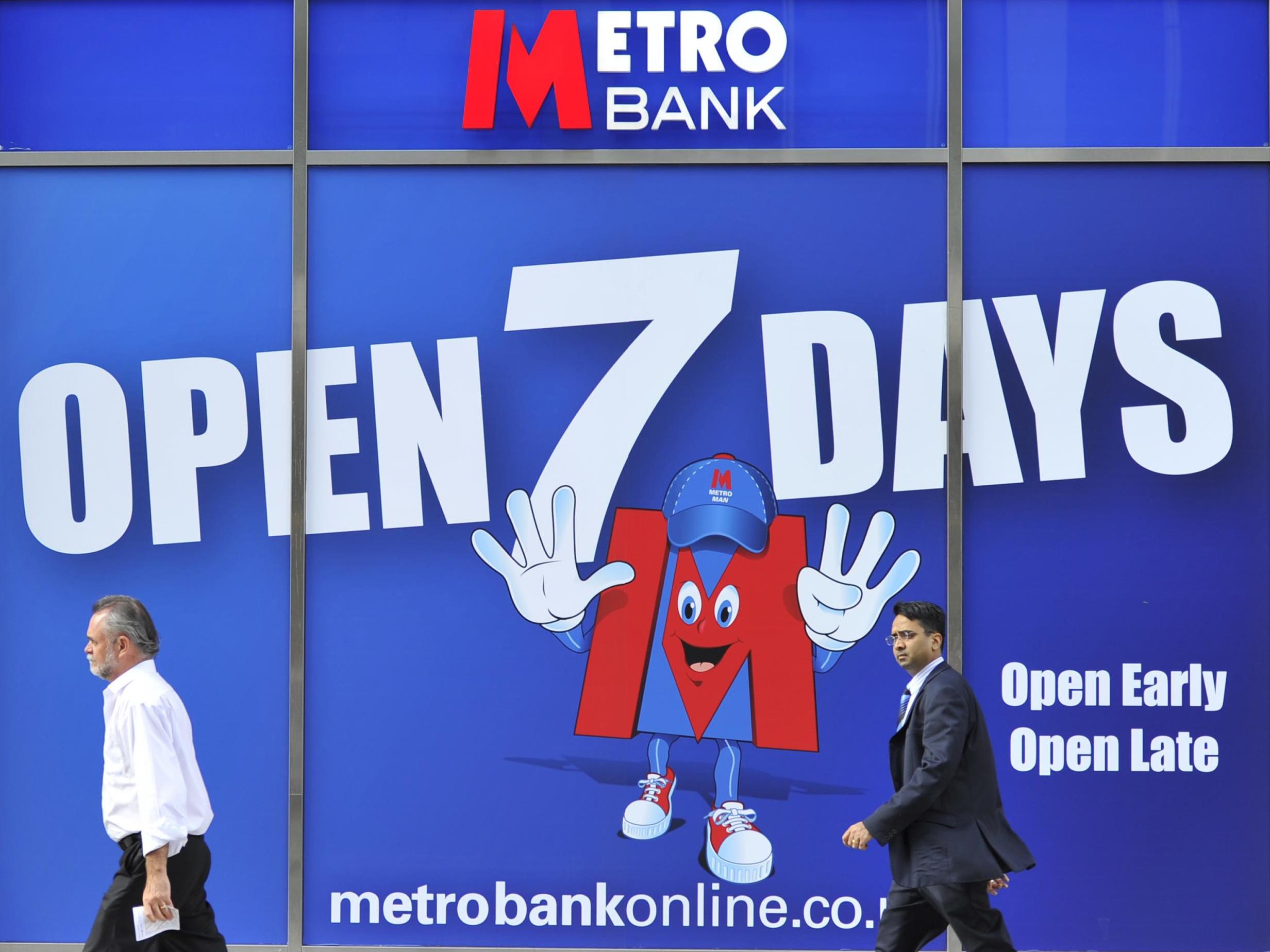Metro Bank: Does a nasty profit warning show that this challenger bank has lost its mojo?
Bosses say the business can take the heat and plan to carry on opening new branches. That's a good thing in a market that could use some out of the box thinking as rival Santander UK closes 140

Your support helps us to tell the story
From reproductive rights to climate change to Big Tech, The Independent is on the ground when the story is developing. Whether it's investigating the financials of Elon Musk's pro-Trump PAC or producing our latest documentary, 'The A Word', which shines a light on the American women fighting for reproductive rights, we know how important it is to parse out the facts from the messaging.
At such a critical moment in US history, we need reporters on the ground. Your donation allows us to keep sending journalists to speak to both sides of the story.
The Independent is trusted by Americans across the entire political spectrum. And unlike many other quality news outlets, we choose not to lock Americans out of our reporting and analysis with paywalls. We believe quality journalism should be available to everyone, paid for by those who can afford it.
Your support makes all the difference.Metro Bank’s challenge to the big banks is suddenly looking a lot less feisty than it was.
When the business was founded by Anthony Thomson and Vernon Hill back in 2010 it was something of a breath of fresh air.
They created a lot of PR noise through the gimmick of offering free dog biscuits to people who turned up to Metro outlets with their mutts, but there was also something more meaningful going on with a branch based model featuring seven day opening and a promise to put the customer first.
The formula won it friends, and proved successful, but has lately hit some road bumps evidenced by a nasty profit warning.
Underlying earnings, the bank said, grew by a funky 138 per cent to £50m last year. Trouble is, that was about £9m off the analysts’ consensus.
Judging by the performance of the shares, which lost close to 30 per cent, some investors looked at the trading update and saw signs flashing “alarm, alarm” outside Metro’s network of shiny new branches.
They were spooked firstly by the banks admission that earnings “softened” in the final quarter of 2018, secondly by the fact that mistakes made in the way the numbers relating to some commercial and buy to let loans to big landlords were calculated.
The interpretation used by the bank for the latter was racier than it should have been, which counts as a rather big “oops”.
It appears discussions with regulators were productive but the upshot is that the bank may now need a cash call to strengthen its capital buffers. Significantly, this was not denied by CEO Craig Donaldson in a conference call with analysts.
Those softening earnings won't make pulling one off any easier. Sure, the mortgage market has been competitive of late, but that happens. The miss was a big one and the way it has unnerved shareholders should come as no surprise.
Metro's leaders are now facing some tough questions, and they are going to have to come up with some good answers when the full results are formally unveiled with the shares now languishing at their lowest point since its flotation.
The bank said that it is pressing ahead with seven further branch opening to add to the 66 it already has, just as rival Santander UK unveiled plans to close 140, admittedly from a much larger base.
It’s still growing, still adding customers, still committed to a model that thumbed its nose at the trends in banking when it was unveiled in 2010 and that sticks out even more now given the carnage taking place among rival banks’ branch networks.
Metro insists it can take the heat and is well positioned despite the clouds of uncertainty hanging over the UK. It is to be hoped that it can, because it remains a worthy addition to a banking scene that could use some fresh thinking.
Join our commenting forum
Join thought-provoking conversations, follow other Independent readers and see their replies
Comments